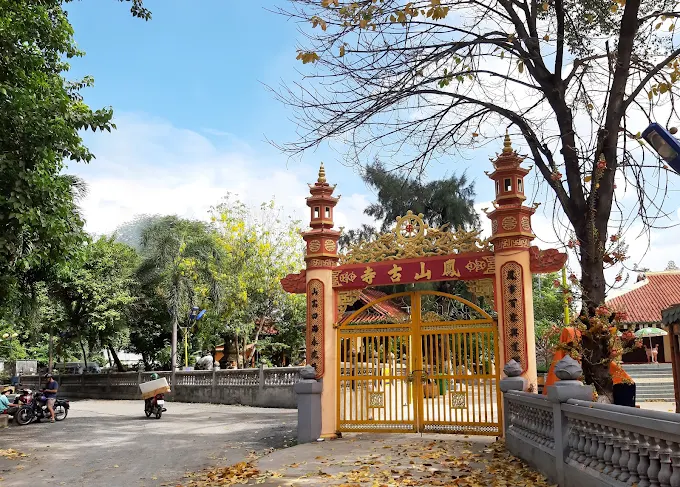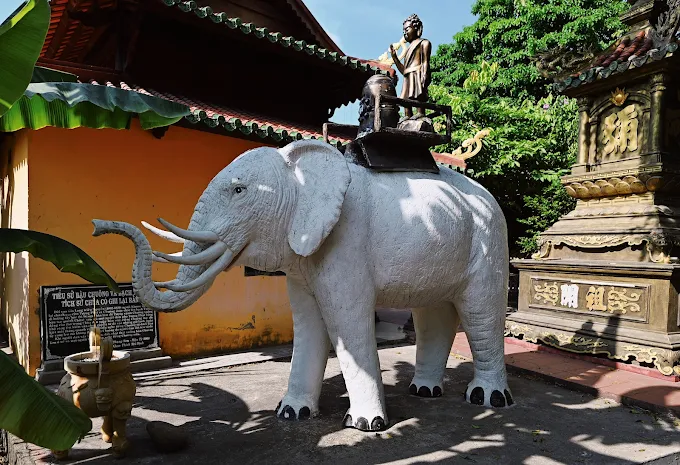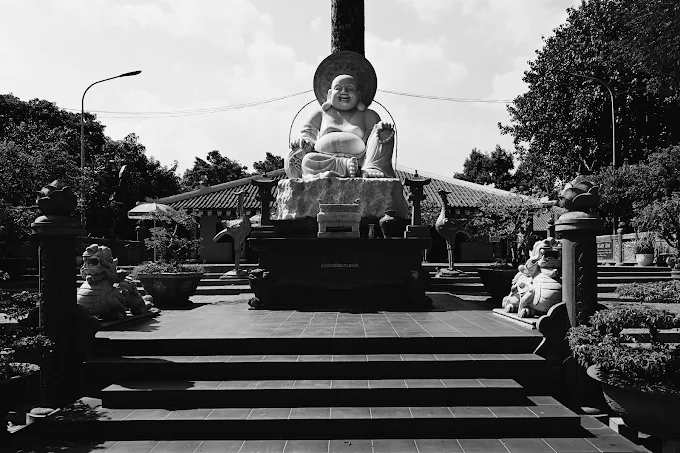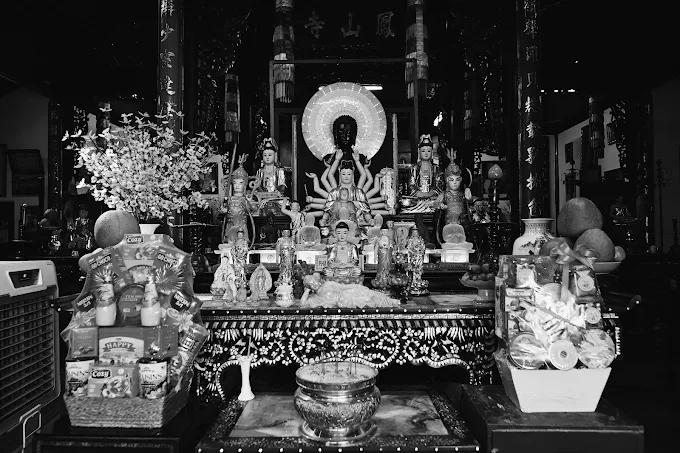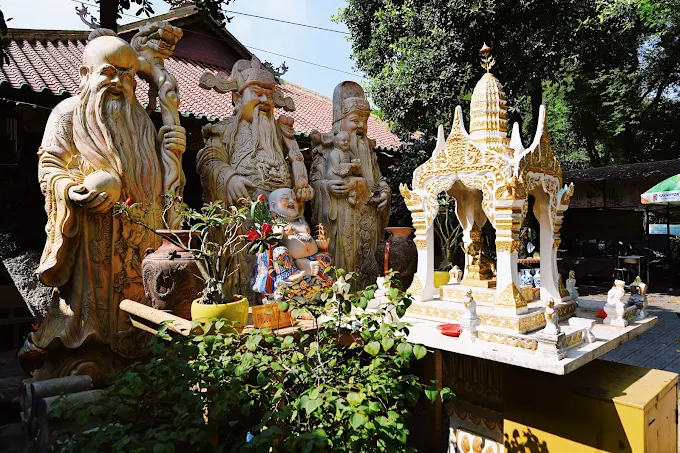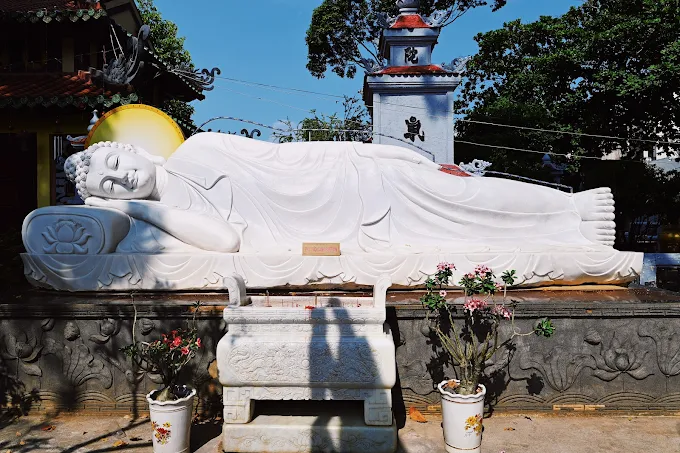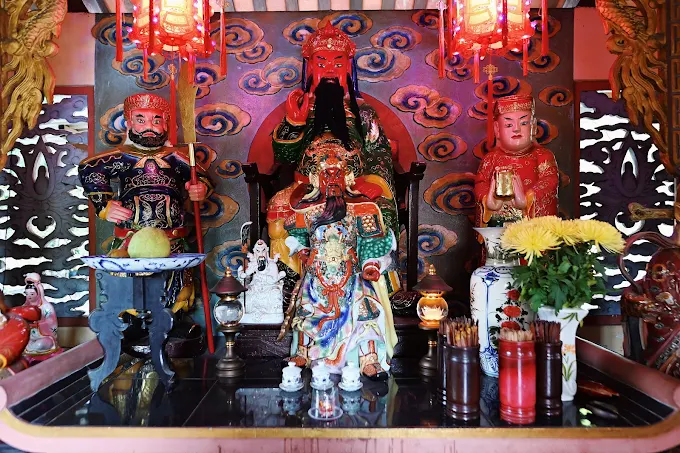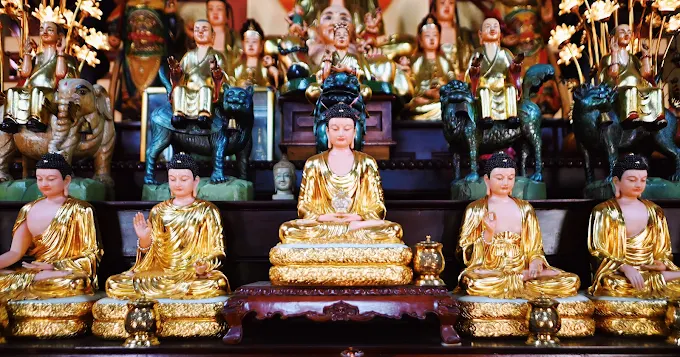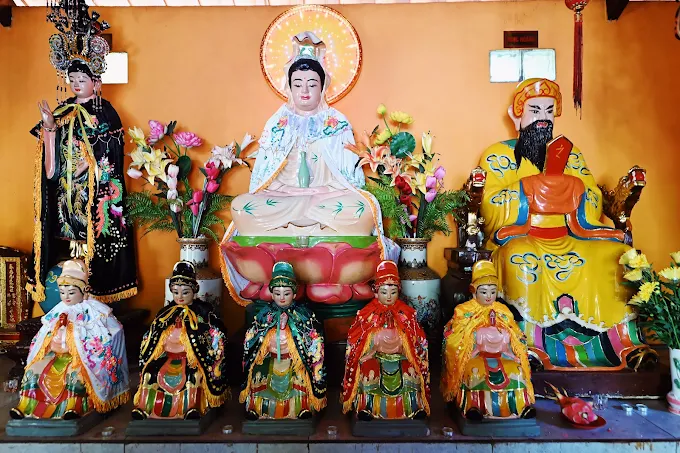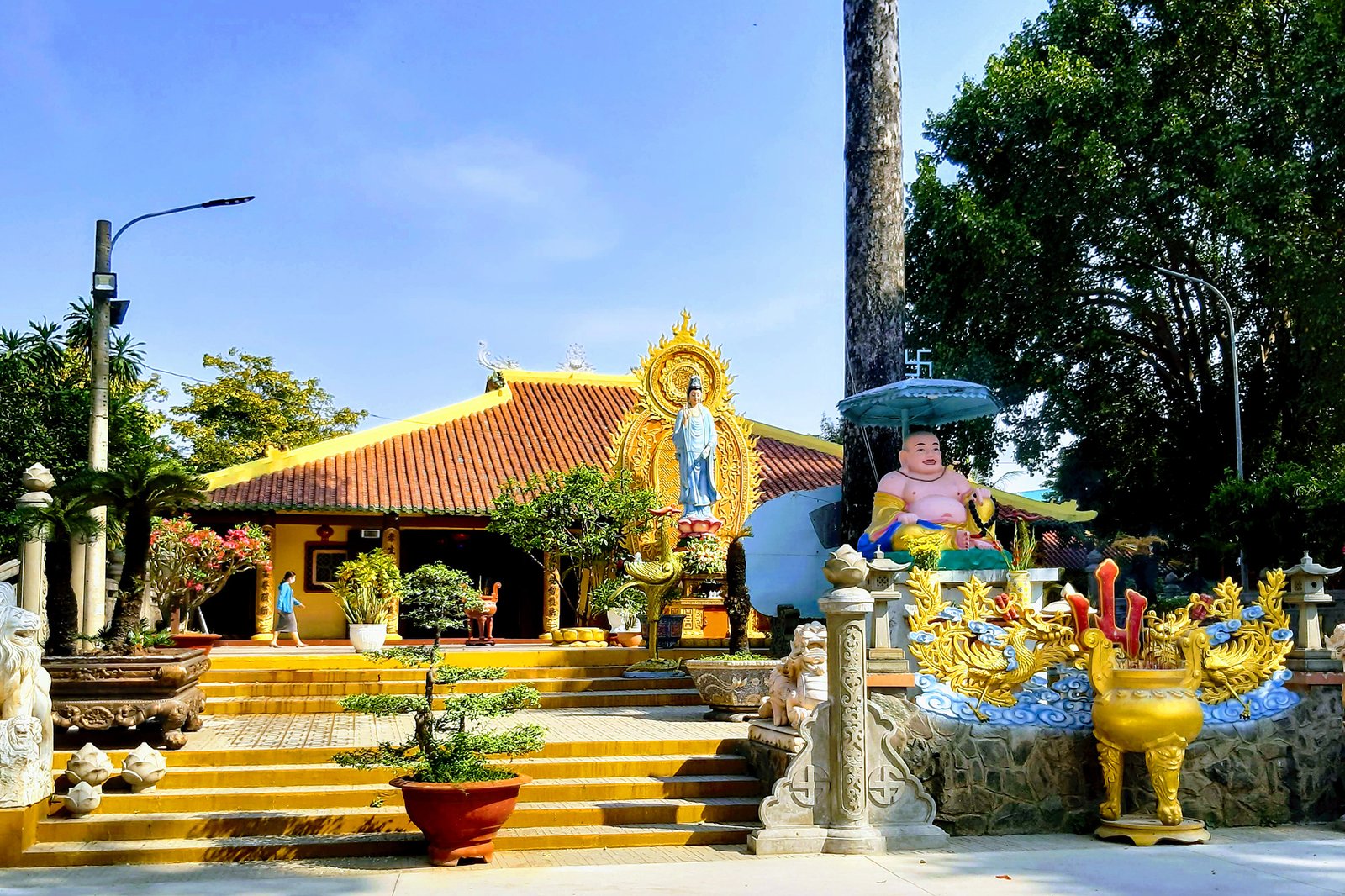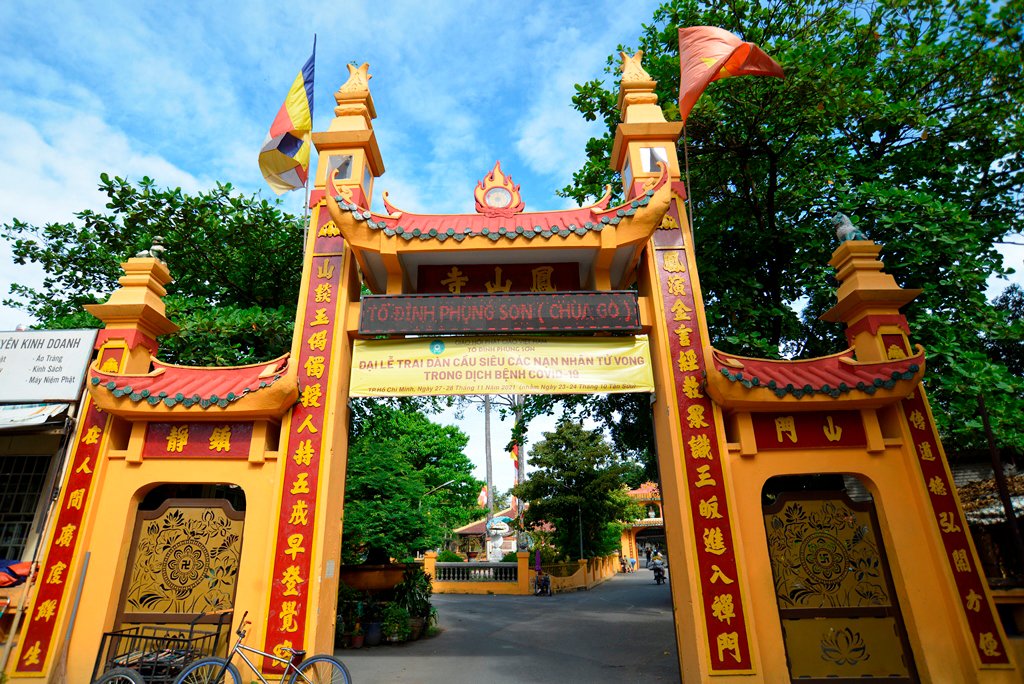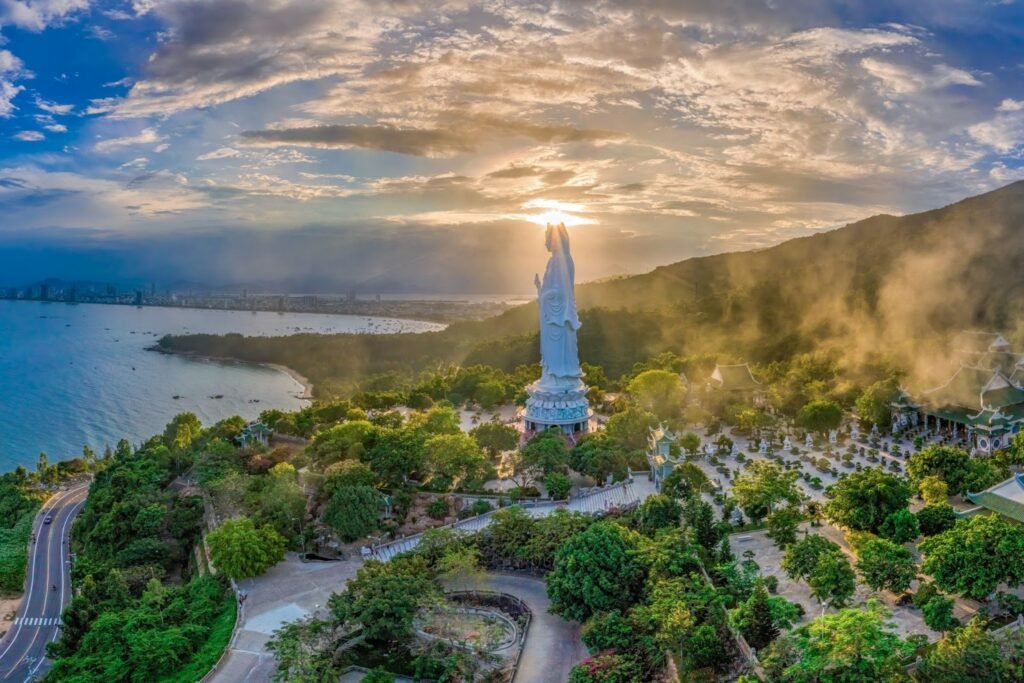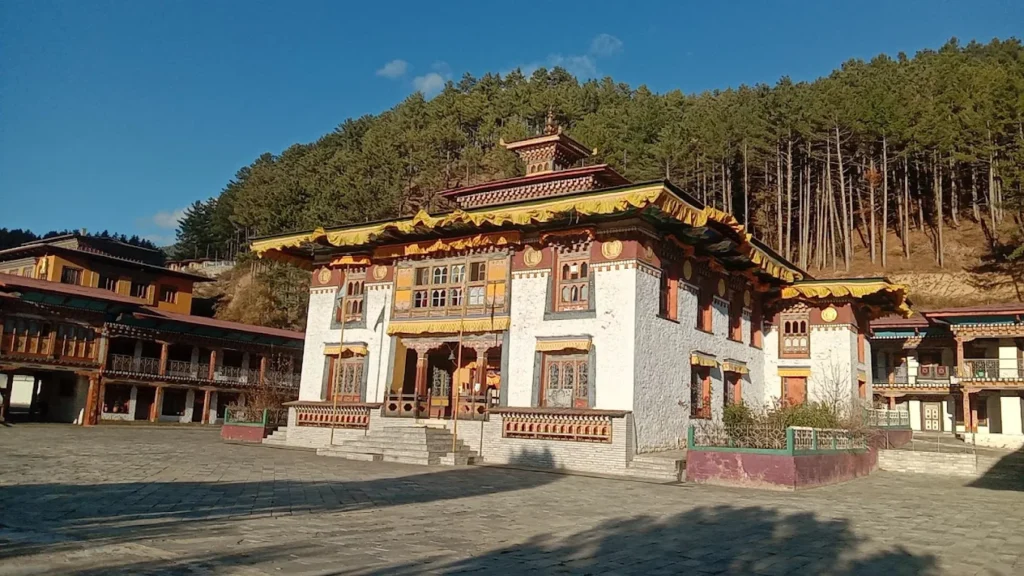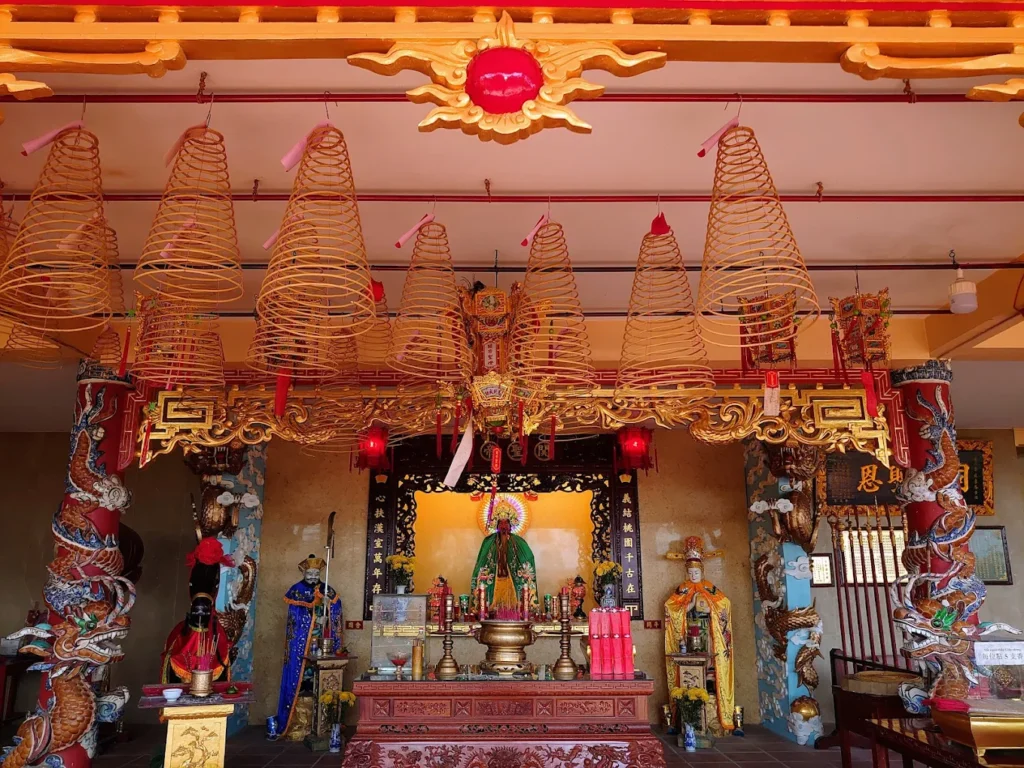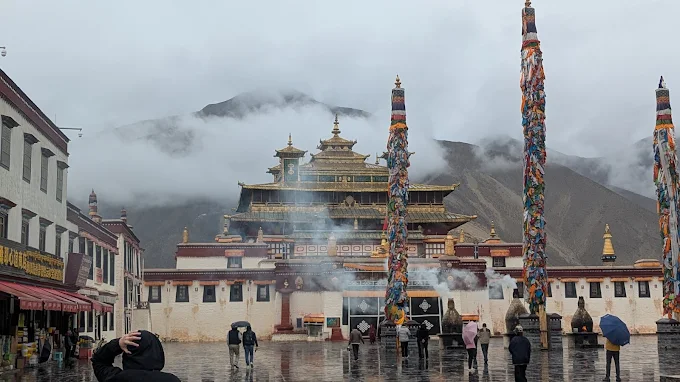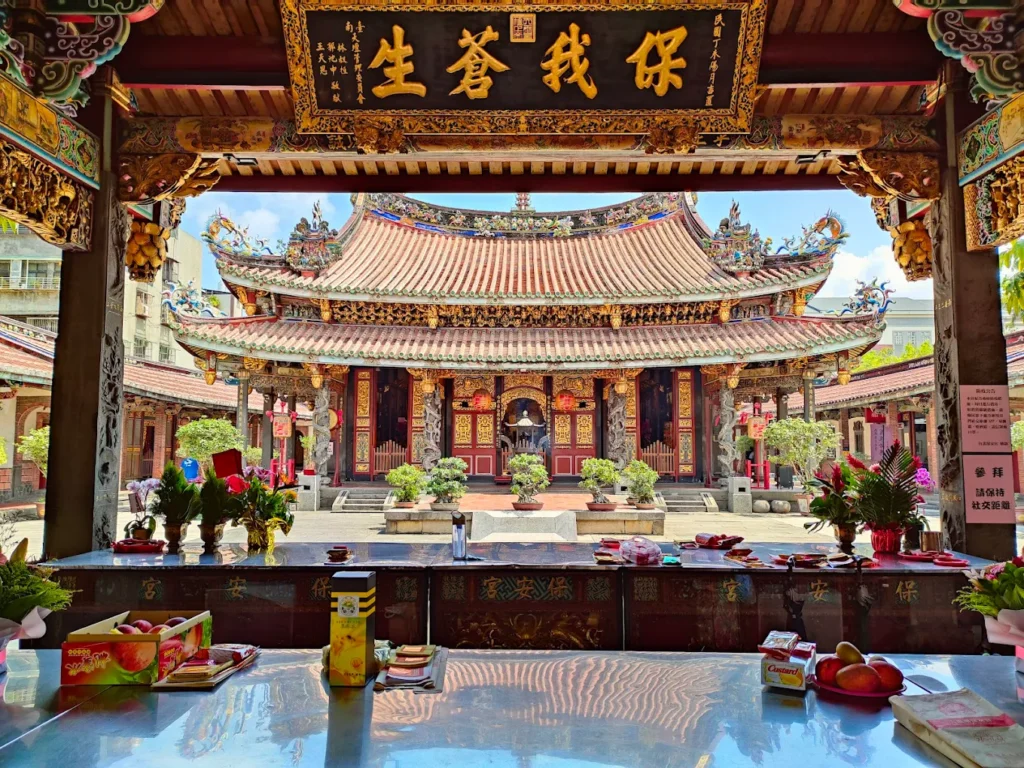Phung Son Pagoda: Saigon’s Sacred Citadel of Ancient Óc Eo Heritage
Nestled at 1408 Đường 3 Tháng 2 in District 11, Phung Son Pagoda, known as Tổ Đình Phụng Sơn or chùa Gò, built around 1802 by Thiền sư Liễu Thông, radiates sacred artistry with its ancient Óc Eo artifacts and red-tiled roofs. This Mahayana pagoda [chùa], a national cultural-historical site since 1988, belongs to the Northern School [Bắc Tông], housing statues of Shakyamuni Buddha [Phật Thích Ca], Guan Gong [Quan Công], and the Amitabha Triad [Di Đà Tam Tôn]. Its serene courtyard hosts Vesak and Vu Lan festivals, drawing thousands. With charity drives and prayers for peace [cầu an], the Phung Son Pagoda listing beckons devotees and travelers to Ho Chi Minh City’s spiritual soul.
Haven of Ancient Heritage: Overview and Significance
Phung Son Pagoda, a Mahayana sanctuary in District 11, blends ancient Óc Eo heritage with spiritual devotion, enriching the Phung Son Pagoda listing. Its historical legacy, cultural vibrancy, and community role make it a cornerstone of Ho Chi Minh City’s Buddhist landscape.
Historical Roots and Legacy
Constructed around 1802 by Thiền sư Liễu Thông on the site of an ancient Chân Lạp temple, the pagoda preserves Óc Eo artifacts from the Funan kingdom, earning national cultural-historical status in 1988. Its relics reflect Vietnam’s early Buddhist history. The Phung Son Pagoda listing highlights its role as a center for prayers and charity in Ho Chi Minh City.
- Key Milestones:
- ~1802: Built by Thiền sư Liễu Thông in District 11.
- 1988: Designated national cultural-historical site.
- Ongoing: Hosts prayers and charity drives.
Cultural and Spiritual Significance
Rooted in Mahayana’s Northern School [Bắc Tông], a Vietnamese branch influenced by Chinese Buddhism, the pagoda emphasizes the Bodhisattva ideal—compassionate service for all beings’ enlightenment—through Zen meditation, sutra chanting, and communal prayers. The Heart Sutra [Kinh Tâm], chanted daily, teaches emptiness, fostering wisdom and inner calm. The Óc Eo artifacts and worship of Linh Sơn Thánh Mẫu, Ông Tà draw pilgrims, while the Phung Son Pagoda listing enhances Ho Chi Minh City’s spiritual tourism.
- Cultural Roles:
- Preserves Northern School practices through prayers.
- Boosts Saigon’s spiritual tourism with Óc Eo relics.
- Unites District 11 through festivals and charity.
Community and Global Connections
The pagoda serves District 11 with free meals and charity drives, uniting locals. Its 2023 Vesak festival drew thousands, fostering community bonds. The Phung Son Pagoda listing attracts global pilgrims, supported by Vietnam’s tourism, connecting local devotion with international curiosity.
- Community Impact:
- Provides free meals and charity.
- Hosts festivals, uniting Buddhists.
- Draws global visitors, promoting Mahayana heritage.
As lotus ponds shimmer and chants echo, the pagoda’s timeless sanctity invites exploration of its archaeological artistry, a highlight of the Phung Son Pagoda listing.
Citadel of Archaeological Artistry: Architectural and Spiritual Features
Phung Son Pagoda’s early 19th-century design, with Vietnamese aesthetics, radiates ancient mystique. Its Óc Eo artifacts and sacred statues enhance its appeal, making it a cornerstone of the Phung Son Pagoda architecture.
Iconic Design and Structures
The pagoda’s red-tiled roofs and wooden pillars frame a serene courtyard with lotus ponds and a hòn non bộ. The main hall [chánh điện], adorned with Buddhist statues, houses Óc Eo relics. A meditation hall and miếu Ông Tà add spiritual depth, anchoring the Phung Son Pagoda architecture with serene elegance.
- Design Highlights:
- Red-tiled roofs with wooden pillars.
- Courtyard with lotus ponds and hòn non bộ.
- Main hall with Óc Eo artifacts.
Sacred Statues and Relics
The main hall houses statues of Shakyamuni Buddha [Phật Thích Ca], Guan Gong [Quan Công], the Amitabha Triad [Di Đà Tam Tôn], the Five Wise Beasts [Ngũ Hiền Thượng Kỳ Thú], and Tiêu Diện, crafted in wood, reflecting Óc Eo craftsmanship. Linh Sơn Thánh Mẫu and Ông Tà statues in the courtyard inspire reverence. The artifacts amplify the spiritual potency of the Phung Son Pagoda listing.
- Statue Details:
- Shakyamuni Buddha: Wood, ~2 meters, central deity.
- Guan Gong: Wood, symbolizing loyalty.
- Óc Eo Artifacts: Pottery and bronze relics.
Artistry and Environmental Harmony
Vietnamese artisans crafted wood carvings and Óc Eo displays, using natural pigments for lotus motifs, rooted in Northern School aesthetics. The pagoda’s compact design, with lush greenery, aligns with Vietnam’s eco-conscious ethos, enhancing the Phung Son Pagoda architecture with serene surroundings.
- Artistic Features:
- Lotus-motif wood carvings, hand-crafted.
- Óc Eo pottery and bronze displays.
- Eco-friendly courtyard design.
The pagoda’s archaeological artistry and serene setting invite exploration of its rituals, a vital part of the Phung Son Pagoda listing.
Rhythms of Sacred Devotion: Rituals and Practices
Phung Son Pagoda pulses with Mahayana rituals, blending chanting, prayers, and charity. Its vibrant practices draw devotees, enriching the Phung Son Pagoda listing.
Daily and Unique Rituals
Monks lead sutra chanting [tụng kinh], including the Heart Sutra [Kinh Tâm], fostering wisdom and compassion. Prayers for peace [cầu an], a core practice, invoke blessings for devotees. Charity drives, like free meals, embody Mahayana compassion, central to the Phung Son Pagoda listing’s spiritual outreach.
- Daily Practices:
- Heart Sutra chanting, ~1 hour.
- Prayers for peace, ~30 minutes.
- Free meal distribution for the poor.
Festival Traditions
The pagoda hosts Vesak [Phật Đản] in April/May and Vu Lan [Ullambana] in August, celebrating the Buddha’s life and filial piety with lamp lightings and prayers. These festivals, drawing thousands, unite District 11’s Buddhists, enhancing the Phung Son Pagoda listing’s communal vibrancy.
- Festival Highlights:
- Vesak: Lamp lightings and prayers, April/May.
- Vu Lan: Filial piety rituals, August.
- Communal gatherings, fostering unity.
Community and Visitor Engagement
Led by senior monks, the pagoda engages District 11 with prayers and charity, serving diverse residents. Visitors join chanting or charity events, guided by monks, enriching the Phung Son Pagoda listing. Community outreach strengthens ties, connecting local devotion with global pilgrims.
- Engagement Activities:
- Guided chanting sessions, ~20 minutes.
- Charity events, open to visitors.
- Community prayer gatherings.
The pagoda’s vibrant rituals and charitable mission guide visitors to practical insights, ensuring a seamless journey to its sacred grounds.
Journey to Phung Son: Visitor Information
Phung Son Pagoda, a serene retreat in District 11, offers easy access for those exploring the Phung Son Pagoda listing. Its urban logistics and nearby attractions make it a must-visit in Ho Chi Minh City.
Navigating the Pagoda
Located at 1408 Đường 3 Tháng 2, the pagoda is a short drive from District 1 via Lý Thường Kiệt Street. A walk through District 11’s quiet streets offers a serene approach. The courtyard, with lotus ponds, is a brief walk from the entrance, with parking nearby for the Phung Son Pagoda listing.
- Navigation Tips:
- Drive via Lý Thường Kiệt to Đường 3 Tháng 2.
- Walk through District 11 for serene views.
- Expect a short walk from parking.
Practical Details and Etiquette
Open daily from 7 AM to 5 PM, the pagoda welcomes visitors without an entry fee, though donations support charity. Dress modestly (shoulders and knees covered), remove shoes in the main hall, and avoid photography inside. Silence phones to respect meditation spaces. The address is 1408 Đường 3 Tháng 2, Phường 2, District 11, Ho Chi Minh City, vital for the Phung Son Pagoda listing.
- Logistics:
- Address: 1408 Đường 3 Tháng 2, Phường 2, District 11, Ho Chi Minh City.
- Hours: 7 AM–5 PM, daily.
- Transport: Taxi or short walk.
- Etiquette: No indoor photography, dress modestly.
Immersive Experiences and Surroundings
Visitors can light incense for blessings or join sutra chanting, guided by monks, for the Phung Son Pagoda listing experience. Charity events, like meal distribution, are open to all. Nearby, Chợ Lớn Market and Giac Vien Pagoda offer cultural depth, while District 11’s streets invite exploration.
- Immersive Tips:
- Join chanting for spiritual immersion.
- Participate in charity events.
- Visit Chợ Lớn Market and Giac Vien Pagoda.
The pagoda’s serene setting and vibrant rituals invite exploration of its philosophical depth, a highlight of the Phung Son Pagoda listing.
Wisdom of Phung Son: Cultural and Spiritual Insights
Phung Son Pagoda offers profound Mahayana insights, its Óc Eo artifacts and statues symbolizing wisdom and compassion. Its role in District 11’s community enriches the Phung Son Pagoda listing.
Philosophical Foundations
Mahayana’s Northern School [Bắc Tông], guiding the pagoda, is a Vietnamese branch influenced by Chinese Buddhism, emphasizing the Bodhisattva ideal—compassionate service for all beings’ enlightenment—through Zen meditation, sutra chanting, and communal prayers. The Heart Sutra [Kinh Tâm], chanted daily, teaches emptiness, fostering wisdom and inner calm. These practices, shared via monk-led talks, deepen the Phung Son Pagoda listing’s spiritual value.
- Key Concepts:
- Bodhisattva Ideal: Compassion for all beings.
- Emptiness: Core of the Heart Sutra.
Cultural and Symbolic Depth
Statues of Shakyamuni Buddha [Phật Thích Ca] and Guan Gong [Quan Công] symbolize wisdom and loyalty, inspiring devotees. The Óc Eo artifacts, Linh Sơn Thánh Mẫu, and Ông Tà worship reflect ancient Funan heritage, shared during tours. Charity drives embody compassion in action, linking the Phung Son Pagoda listing to Ho Chi Minh City’s spiritual soul.
- Symbolic Elements:
- Shakyamuni Buddha: Wisdom and enlightenment.
- Óc Eo Artifacts: Ancient heritage.
Community and Environmental Resilience
The pagoda unites District 11 through prayers and charity, serving the community. Its lush courtyard, with minimal environmental impact, aligns with Vietnam’s eco-conscious ethos. Community outreach ensures Buddhist values thrive, enriching the Phung Son Pagoda listing.
- Resilience Efforts:
- Charity drives, serving the poor.
- Eco-friendly courtyard design.
The pagoda’s wisdom and compassion invite visitors to experience its sacred power, a cornerstone of the Phung Son Pagoda listing.
Why You Have to Get to Phung Son Pagoda
Phung Son Pagoda is a must-visit for its ancient sanctity and Mahayana compassion in Ho Chi Minh City. Built around 1802 in District 11, its Óc Eo artifacts and Shakyamuni Buddha statue radiate wisdom, while charity drives uplift the community. Vesak and Vu Lan festivals draw thousands to Ho Chi Minh City’s spiritual soul. The Phung Son Pagoda listing beckons seekers, researchers, and pilgrims to a sanctuary where ancient heritage and faith unite, as lotus ponds shimmer and chants echo in timeless sanctity.
